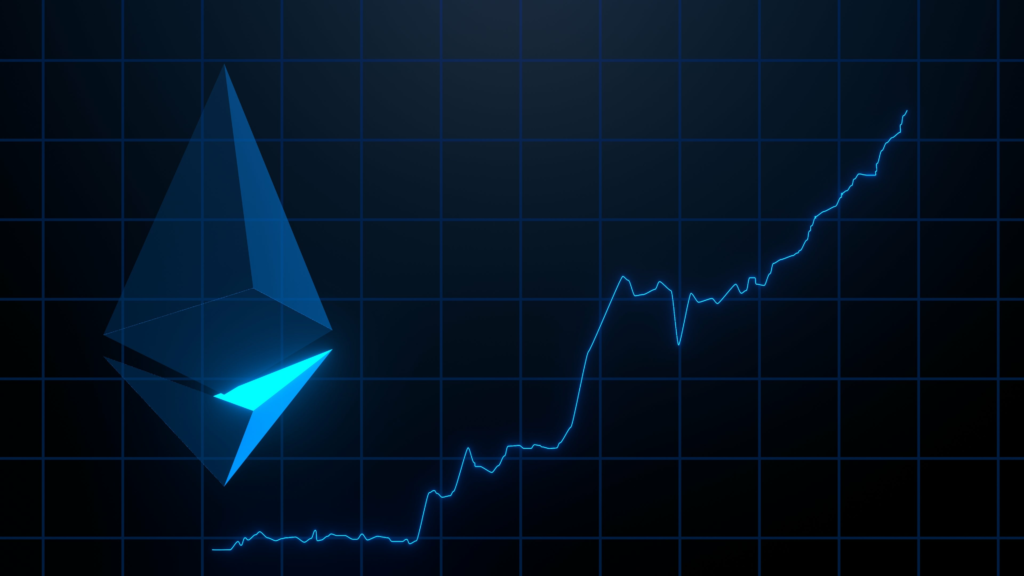Founded in 1993 by brothers Tom and David Gardner, The Motley Fool helps millions of people attain financial freedom through our website, podcasts, books, newspaper column, radio show, and premium investing services.
Founded in 1993 by brothers Tom and David Gardner, The Motley Fool helps millions of people attain financial freedom through our website, podcasts, books, newspaper column, radio show, and premium investing services.
Motley Fool Issues Rare “All In” Buy Alert
You’re reading a free article with opinions that may differ from The Motley Fool’s Premium Investing Services. Become a Motley Fool member today to get instant access to our top analyst recommendations, in-depth research, investing resources, and more. Learn More
What was once just a market of one is now flooded with other options for cryptocurrency investors. The arrival of meme coins that seem to create millionaires overnight makes it easy to believe that cryptocurrency investments are meant only for the short term. But despite a crowded field, there is one cryptocurrency investors should count on never selling — Ethereum (ETH 6.15%).
Like Bitcoin (BTC 2.14%), Ethereum is a cryptocurrency that changed our thinking about finance in the digital age, but for different reasons. Ethereum is unique from Bitcoin in myriad ways. But one, in particular, is responsible for what is possibly the greatest innovation to result from blockchain and cryptocurrency technologies — decentralized finance, better known as DeFi.
The traditional financial world relies on centralized authorities like banks, notaries, brokers, exchanges, and other middlemen who manage and process financial services. Traditional financial processes, such as applying for a loan or purchasing a stock, require some sort of intermediary to conduct the transaction.
But because of Ethereum and its innovative smart-contract technology, these traditional financial processes are becoming increasingly obsolete. Smart contracts are the backbone of DeFi and are what make Ethereum so unique. Before its creation in 2014, no other cryptocurrency had smart-contract capabilities. The creation of smart contracts allows blockchain developers to customize conditions and criteria for executing particular actions.
For example, smart contracts could oversee loan agreements and release collateral upon full repayment. Since smart contracts can integrate with other data, they could also regulate agricultural drought insurance policies by automatically paying out if agreed amounts of rainfall occur.
In addition to their seemingly infinite customization and potential, smart contracts and DeFi could completely upend what we believe traditional institutions’ roles are in the financial world.
One of the most appealing aspects of DeFi is its inclusivity. If you want to utilize a DeFi financial product, all you need is an internet connection. There are no credit bureaus, no brokers, and no loan officers. As long as a crypto wallet is set up, users can trade and move assets anytime and anywhere.
In addition, all transactions are in real-time and completely transparent. There is no need for banks or brokers to process transactions since they occur near instantaneously on the blockchain. The other perk of the blockchain is that once a transaction is added, anyone with an internet connection can view activity on the network. It doesn’t hurt that just about any possibility of tampering or malfeasance is eliminated due to the blockchain’s high level of security.
Arguably, the greatest benefit of DeFi is that it is constantly evolving. Applications and projects built on Ethereum are all open-source. That means developers can integrate multiple DeFi apps to create financial products to meet new user demands as they arise.
Since Ethereum was the first blockchain to possess smart-contract functionality, it holds most of the market share that makes up the DeFi sector. Despite new competitors like Tron (TRX 2.45%), Binance Coin (BNB 2.80%), and Avalanche (AVAX 5.60%) arriving to grab some of the market, they face an uphill battle because Ethereum’s grasp on the DeFi economy is unbelievably disproportionate.
We can look at a statistic called Total Value Locked (TVL) to compare the collective value of a blockchain’s DeFi ecosystem. Think of it like the market cap of a company.
Out of the $62.5 billion invested across DeFi as of this writing, nearly $36 billion is on Ethereum’s blockchain. The next-closest competitor is Tron, and this blockchain only supports about $9 billion of value. It’s not even close.
The potential long-term value DeFi presents should be heavily weighed by investors, especially considering it’s only in its infancy. Those who are optimistic that DeFi can usurp traditional finance should count on Ethereum continuing to dominate for the foreseeable future.
RJ Fulton has positions in Bitcoin and Ethereum. The Motley Fool has positions in and recommends Avalanche, Bitcoin, and Ethereum. The Motley Fool has a disclosure policy.
*Average returns of all recommendations since inception. Cost basis and return based on previous market day close.
Market-beating stocks from our award-winning analyst team.
Calculated by average return of all stock recommendations since inception of the Stock Advisor service in February of 2002. Returns as of 08/29/2022.
Discounted offers are only available to new members. Stock Advisor list price is $199 per year.
Calculated by Time-Weighted Return since 2002. Volatility profiles based on trailing-three-year calculations of the standard deviation of service investment returns.
Invest better with The Motley Fool. Get stock recommendations, portfolio guidance, and more from The Motley Fool’s premium services.
Making the world smarter, happier, and richer.
Market data powered by Xignite.


